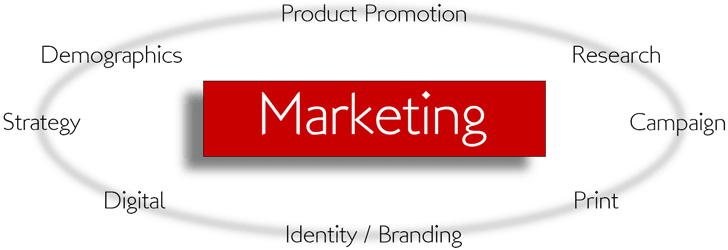RESEARCH – KNOW YOUR CUSTOMER, AND HOW TO REACH THEM
What do you know about your customers? What does industry data tell us about marketing to them? There are documented associations between demographic information (age, gender, income level, geographic location, etc.), and the places where they are most likely to discover a new business or product. The more you know about where and how your customer wants to find you, the better you will be able to position yourself in front of them.
IDENTITY / BRANDING VERSUS PRODUCT PROMOTION
The marketing that you do for your company and the marketing that you do for its products or services may not be the same. Trust and familiarity with a brand certainly helps with a customer’s decision to try or continue with a product or service. Reciprocally, good experience with a product certainly builds trust in a brand. That said, you will often find that brand marketing works better in more public settings, where people have less time to “absorb” your message. Product marketing works better in more intimate settings, where people have time to kill, or have dedicated time to learning for themselves. This should be considered when looking at any media; things like newspaper ads, stadium banner sponsorships, or a video for your Facebook page.
SECONDARY CONNECTIONS
What else do your customers have in common besides your business? If you cater to a wealthy client type, perhaps advertising at the local golf clubs should be in your plan. Are your services for the whole family? Being a vendor or sponsor at a community festival might be for you. Also think about other businesses who share your customers, but aren’t competitors. Look at partnering on programs or advertising to share each other’s database.
A MARKETING PLAN AND BUDGET
Putting together a marketing plan and a marketing budget go hand-in-hand. You should consider current trends, along with what has worked before. You should look for affordable and creative ways to get in front of your customer; ideally in a space where they are receptive. You should try to identify what made something work or not work in the past, and also look at what your competition is doing. If you have one product or service that is more profitable than others, you might look at promoting it more exclusively. There is a lot that can be done to keep costs low, efforts targeted, and potential for return on investment high. We are happy to help you develop a marketing plan and budget that you feel good about.


